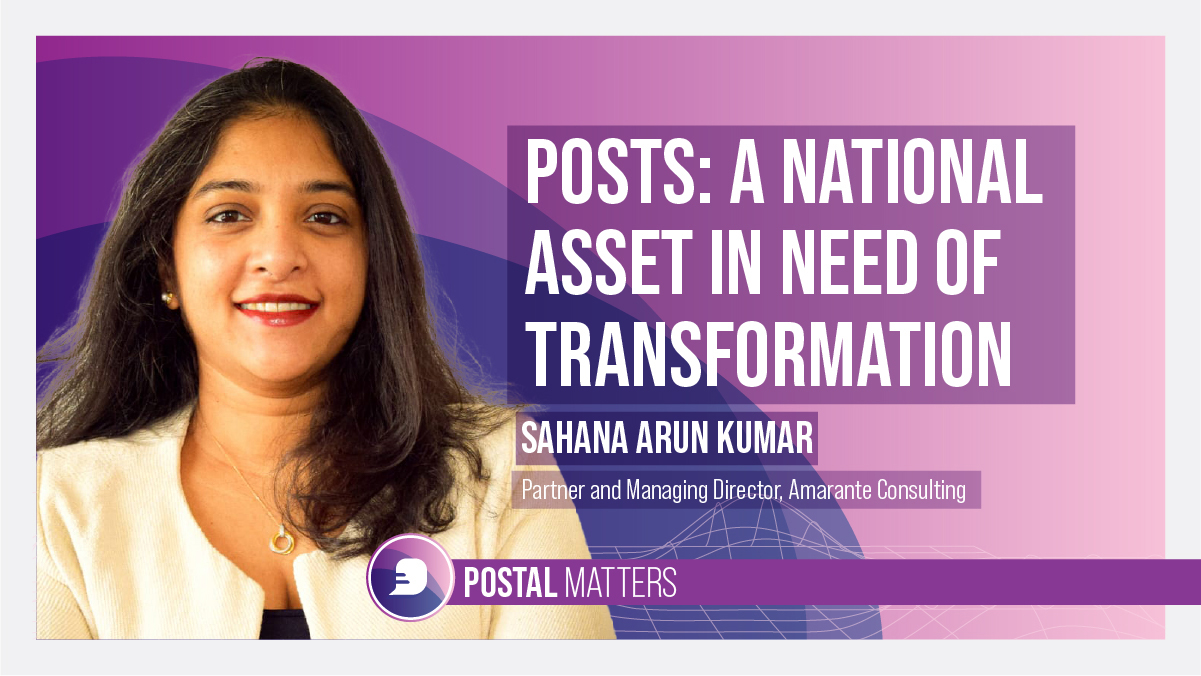Sustainable development is an essential element of postal operations. It contributes to improved business efficiency and resilience, strengthened customer relationships, and the development of new markets. In addition, responsible operations allow postal operators to create attractive and safe working places, build trust with the communities in which they operate, and leverage their networks for the involvement and benefit of the general public.
The UPU supports postal operators in their efforts to incorporate sustainable development into their activities. During the Abidjan Congress we made numerous deliverables for the next 4 years of business cycle with Resolutions on the climate actions and gender equality. Sustainable activities of the UPU fall on these three categories:
Environmental: Monitor the greenhouse gas emissions from postal operations, and enable postal operators to analyze and address the emissions related to their activities. Share best practices and knowledge on environmental management, natural resource use and renewable energy. Contribute to the global sustainability agenda
Social and societal: Raise awareness on social and health issues through the postal network, contribute to the fight against exclusion and discrimination, promote diversity and professional gender equality, and support the postal sector in its role as a major employer
Economic: Support postal operators with tools and knowledge to increase quality of service and implement cost-efficient business methods and responsible purchasing processes. Our financial inclusion programme helps postal operators expand their capacity to provide access to financial services, in particular for underserviced groups
The UPU is also committed to working toward achieving the 2030 Agenda for Sustainable Development.
Environmental Sustainability
With more than 1 million vehicles and some 800,000 buildings combined, the postal operators of UPU member countries have a significant environmental impact.
However, the postal sector is also part of the solution. It has the most advanced transport network in the world, is a major employer and reaches a large audience daily. In most cases, Posts are also the owners of the biggest vehicle fleets on a national level. As such, the Post is a powerful agent for change.
Many postal operators have come far in implementing sustainable practices. Postal organizations around the world are transitioning their fleets to alternative vehicles and generating their own renewable energy, and have mainstreamed sustainability into their business management and procurement processes. Others are active in the communities they serve and make their infrastructure available for recycling schemes and information sharing on environmental issues.
With the rise of e-commerce, an increasing demand from consumers for sustainable products and services, including climate-efficient shipping, is shaping new business models in the postal sector.
The UPU monitors the greenhouse gas emissions of postal operations worldwide and provides postal operators with a tailor-made carbon accounting tool: OSCAR – the Online Solution for Carbon Analysis and Reporting – is a tool provided by the UPU to measure and analyze the postal sector's carbon footprint. Through this online, interactive platform, postal organizations in the Union's 192 member countries are able to analyze and report their greenhouse gas (GHG) emissions and identify mitigation opportunities. Read more about OSCAR here.
In addition, the UPU carries out a range of activities that seek to build capacity and share best practices on climate change mitigation and natural resource management, and works together with other organizations to shape the global sustainability agenda.
Social Sustainability
Through its extensive network, the postal sector reaches a large audience daily. Many postal operators are active in the communities they serve, and they make their infrastructure available for delivering a range of social services to the general public. The postal network is also an excellent platform for information sharing – for example, in post offices and through postage stamps. Over the years, the UPU has supported postal operators in raising awareness on environmental and health issues.
With more than 5 million staff worldwide, the postal sector is a major employer. The UPU supports the postal operators in its member countries in their efforts to provide fair, safe and attractive workplaces that are free of discrimination.
On a global level, the UPU monitors the postal sector's contribution to the Sustainable Development Goals (SDGs) and works with other organizations to ensure that perspectives on postal issues are part of the international discourse on development.
In November 2019, the UPU launched a new project to promote and better understand the delivery of social services via the Post - services designed to directly improve the well-being of the public.
Economic Sustainability
The UPU provides postal operators with tools and knowledge to increase the quality and accessibility of their services; implement cost-efficient business methods; and stimulate the responsible use of natural, human and financial capital. We also encourage the implementation of ethical procurement processes, and the use of an integrated approach to environmental, social and economic management.
With 2 billion accounts worldwide, the postal sector plays an important role in providing access to affordable financial services to the general public, in particular to people who are often excluded, such as low-income populations, women, young people and rural communities. These financial services include bank accounts, payments, safe money transfers and credit. The UPU Financial Inclusion Programme makes research and technical assistance available to postal operators, supporting them in providing more relevant, efficient and impactful financial services to excluded populations and MSMEs.
Related News

Correos de Costa Rica launches cold chain transport of medicines
.png)
Automation at the core: GN TEQ and Saudi Post enhance e-commerce efficiency in Saudi Arabia
.jpg)
Empowering women in the postal sector: UPU fellowship fuels leadership and innovation

New Correos de México CEO targets postal modernization
The Mexican Postal Service has a new leader. Violeta Abreu was appointed General Director of Correos de México by the first woman to serve as president of Mexico, Claudia Sheinbaum, who took office on 1 October. Abreu, herself one of only a few women leading posts, discussed with the UPU her vision for continuing the transformational work of her predecessor, Rocío Bárcena, to modernize the post and to diversify its offerings so that the Mexican Postal Service may become a leader in logistics and e-commerce for the nation and beyond.

Posts and fintechs unite for women’s digital financial inclusion

Posts: a national asset in need of transformation
Post4Health: transforming healthcare logistics in Botswana

UNCTAD: Towards a fair digital economy for small business
